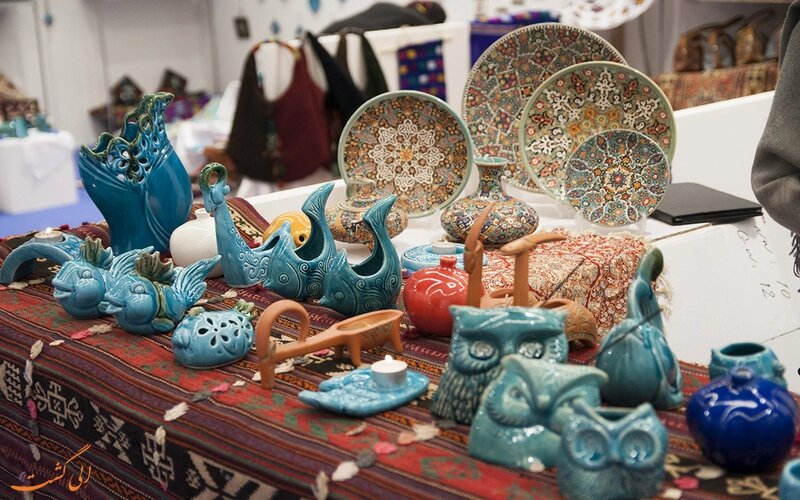Tehran museum to host handicrafts exhibit

TEHRAN –Darvazeh Dolat Gas Station Museum in downtown Tehran will be hosting an exhibition of Iranian handicrafts and traditional arts, Tehran’s deputy tourism chief has announced.
The three-day exhibit, which will open on March 22, will include artworks of different fields, such as pottery, miniature, embroidery, leatherwork, woodcarving, and traditional jewelry, Parvaneh Heidari said on Wednesday.
The exhibit aims at promoting domestic handicrafts as gifts to celebrate Noruz, the Iranian New Year, the official added.
From ancient times to today, gift-giving tradition on a fresh new year symbolizes wealth, prosperity, fertility, or luck. Perhaps the most enduring image of Noruz is about socializing, deepening family bonds, and meeting up with old friends mostly in their homes.
Wide-ranging handicrafts
With 14 entries, Iran ranks first globally for the number of cities and villages registered by the World Crafts Council, as China with seven entries, Chile with four, and India with three ones come next.
In January 2020, the cities of Shiraz, Malayer, and Zanjan and the village of Qassemabad were designated by the WCC-Asia Pacific Region, putting Iran’s number of world crafts cities and villages from ten to 14.
The value of Iran’s handicrafts exports stood at $120 million during the first eleven months of the past Iranian calendar year 1399 (March 20, 2020 – February 18, 2021), Mehr reported. The country’s handicrafts exports slumped during the mentioned months in comparison to the same period last a year earlier due to the damage the coronavirus pandemic has inflicted on global trade.
The Islamic Republic exported $427 million worth of handicrafts during the first eleven months of the calendar year 1398. Of the figure, some $190 million was earned via suitcase trade (allowed for customs-free and tax-free transfer) through 20 provinces, according to data compiled by the Ministry of Cultural Heritage, Tourism and Handicrafts.
Ceramics, pottery vessels, handwoven cloths as well as personal ornamentations with precious and semi-precious gemstones are traditionally exported to Iraq, Afghanistan, Germany, the U.S., the UK, and other countries.
Darvazeh Dolat Gas Station Museum
Darvazeh Dolat Gas Station Museum was active as a gas station till the 1990s, after which it ceased operations to the construction of the subway. In 2017, the museum department of the Oil Ministry restored and turned the building into a museum.
This museum houses some 500 historic objects, all of which are registered on the national heritage list and date back 50 to 100 years.
The highlights are two industrial treasures including a 1947 Leyland petrol tanker and a 1921 Satam gas pump.
Leyland was a British automotive engineering and manufacturing company, while Satam was a French company supplying metering solutions to the oil and gas industry.
During the 1940s, fourteen gas stations were built in Tehran with the assistance of a British company, of which only the Darvazeh Dolat Gas Station Museum and Station No. 4 still exist. Other gas stations have slowly crumbled and repurposed.
ABU/MG
